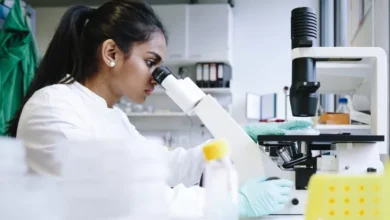Is it possible to avoid breast cancer?

Breast cancer is one of the most common cancers among women, but while there is no guaranteed way to prevent it, certain lifestyle changes and proactive measures can reduce the risk of developing the disease. Here are some important strategies that may help:
1. Maintain a Healthy Weight
Being overweight or obese, especially after menopause, increases the risk of breast cancer. Fat tissue can produce extra estrogen, which may fuel the growth of certain types of breast cancer. Maintaining a healthy body weight through a balanced diet and regular exercise is key to reducing this risk.
2. Exercise Regularly
Physical activity has been shown to lower breast cancer risk. Aim for at least 150 minutes of moderate aerobic exercise or 75 minutes of vigorous activity each week. Regular exercise helps control weight and reduces the levels of estrogen and insulin in the body, both of which have been linked to cancer risk.
3. Limit Alcohol Consumption
Alcohol increases the risk of breast cancer. Even small amounts can elevate your risk, so it is advisable to limit alcohol intake to one drink a day or less. Some research suggests that completely avoiding alcohol may further reduce the risk.
4. Eat a Balanced Diet
A diet rich in fruits, vegetables, whole grains, and lean proteins can help support overall health and may reduce cancer risk. Certain foods, like those rich in antioxidants (berries, leafy greens), and anti-inflammatory properties (turmeric, ginger), can be particularly beneficial. Additionally, reducing saturated fats and processed foods may lower the risk.
5. Limit Hormone Therapy
Postmenopausal hormone therapy that combines estrogen and progesterone has been associated with an increased risk of breast cancer. If hormone therapy is necessary, it should be used for the shortest duration possible, under the guidance of a healthcare professional.
6. Breastfeed if Possible
Studies have shown that breastfeeding for a total of one year or more (combined for all children) can lower the risk of breast cancer. Breastfeeding may lower hormone levels linked to cancer risk and helps shed breast tissue, which may reduce abnormal cell growth.
7. Avoid Smoking
Smoking is linked to many types of cancer, including breast cancer. Quitting smoking or avoiding it altogether not only reduces cancer risk but also improves overall health.
8. Know Your Family History
Women with a family history of breast cancer, particularly if they carry BRCA1 or BRCA2 gene mutations, are at a higher risk. If you have a strong family history, consider genetic testing and counseling to determine whether preventative measures, like more frequent screenings or even preventive surgery, may be necessary.
9. Regular Screenings and Self-Exams
Early detection is crucial in improving breast cancer outcomes. Women should have regular mammograms starting at the age recommended by their doctor based on personal and family history. Additionally, performing regular breast self-exams helps in detecting any unusual changes, lumps, or abnormalities early on.
10. Limit Exposure to Radiation and Environmental Toxins
Some research suggests that exposure to certain environmental toxins, such as those found in some plastics or certain cosmetics, may increase cancer risk. Limiting exposure to unnecessary radiation (like frequent X-rays) and using natural or safer products may help minimize these risks.
While there is no sure way to prevent breast cancer, adopting a healthy lifestyle, being proactive about screenings, and understanding your personal and family history can significantly lower the risk. If you are concerned about breast cancer risk, it’s essential to talk to your healthcare provider, who can recommend appropriate screening and preventative strategies based on your individual risk factors.










